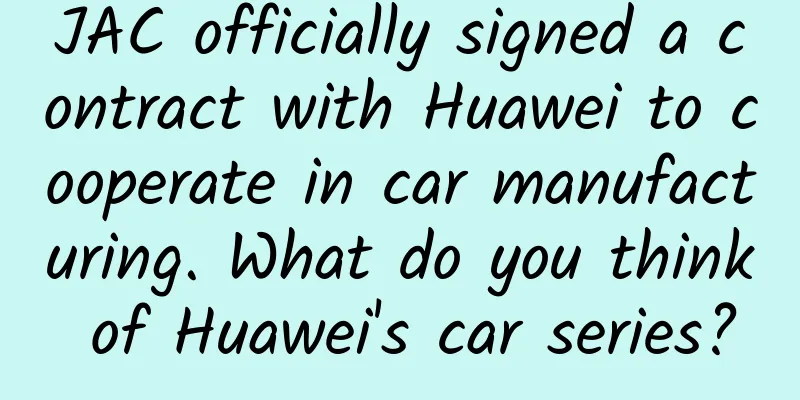Zhongguancun's changing face: the end of an era that once made people love and hate it

|
Zhongguancun used to be a place that people both loved and hated. When it comes to this, most people will think of Dinghao Electronics Mall (hereinafter referred to as Dinghao), Hailong Electronics City (hereinafter referred to as Hailong), and the black shopping guides at the entrance of Zhongguancun e-World who need to solicit business everywhere, the densely packed small counters in the stores, the various accessories, and the endless stream of people. Especially in the era of computer assembly, Zhongguancun is like an open assembly factory, meeting the different needs of different groups of people for IT products. However, as disorderly competition within the mall led to the rampant spread of fakes and refurbished products, the reputation of Zhongguancun Electronics Mall plummeted, and it was subsequently squeezed out by Internet e-commerce companies that mainly adopted the B2C model. People are becoming more and more accustomed to shopping in online malls with transparent prices, and their brand awareness is also growing stronger. Zhongguancun Electronics Mall has also changed from the past bustling scene to a recession. The small bosses behind the counters have also tried to change. They opened stores on Taobao, registered their companies and tried to become suppliers for JD.com , and some changed from "selling computers" and "selling mobile phones" to "repairing computers" and "repairing mobile phones." Despite this, the iterative changes in Zhongguancun are still inevitable. Pacific Computer City closed down in 2011, and Zhongguancun e-World issued an announcement after the Spring Festival in 2016, saying that it would rent out the entire space or the entire floor and operate it in a unified manner, and would no longer engage in the business of electronic stores. In the west area of Zhongguancun, new business formats represented by Zhongguancun Entrepreneurship Street have become the new coordinates of this area, and a large number of entrepreneurial spaces have emerged. On July 7, 2016, Hailong, which has an excellent geographical location, also posted a "Notice" saying, "From now on, we will cease operations and undergo upgrades and renovations." In the era of shopping malls, only Dinghao is still holding on to Zhongguancun. In addition to the existing labels such as "computer city", "China Silicon Valley" and "entrepreneurship park", what new labels will Zhongguancun have in the future? 1 The counter of Lao Zhao and his wife is located at a corner on the third floor of Dinghao Building A. The counter is not large, only three or four square meters at most. Half of the shelves behind the counter are filled with ink cartridges, toner cartridges and other printing supplies, and the other half are filled with various data cables. Mobile phone store on the basement floor of Zhongguancun Dinghao. Photo by Lv MengIt was Wednesday, the day before Hailong closed. Like other weekdays, there were still few customers in the entire mall, only stall owners watching movies, TV series, and playing games. Those with relatively good business could hire a shopping guide to help, while those with poor business were mostly husband-and-wife teams. Lao Zhao did not hire anyone. When asked about his business, Lao Zhao asked, "What else can I do? I just live one day at a time!" It is hard to say how long this situation has lasted, but he does not completely agree that "it is the impact of e-commerce that has taken away their jobs." "We all have our own stores on Taobao, but online sales only account for 10%-20% of our total sales at most. The market economy is not good, government procurement has also been tightened, and there are no big orders, so business is definitely not going to be very good," said Lao Zhao. Even so, he never thought about closing the stall and leaving Zhongguancun to do something else. In his eyes, no industry is easy to do now, and it is better to do what he is good at than to re-enter an unfamiliar field. "After all, I have been in this business for ten years. We used to have a large amount of inventory, but now we have almost digested it. As long as Dinghao is not closed, we will stick to it even if only half of the store is left." Similar to Lao Zhao, many merchants are taking things one step at a time. They feel that they have little say, just like the relocation of the Zoo Clothing Wholesale Market, "If they tell us to leave, we have to leave. If the business gets bigger, no one will stay here." Scattered electronic product models. Photo: Lv MengBut more than a decade ago, Zhongguancun was a completely different scene. Some media have reported that the Hailong Building, which opened in 1999, had an average daily passenger flow of 30,000 to 40,000 in the following years. By the end of 2006, a total of more than 70 million passengers had flocked to Zhongguancun. In 1997, in order to ease the traffic congestion around the Haidian University District and Zhongguancun shopping malls, the Beijing Municipal Government cut down decades-old trees on the roadside to widen the road. The first "Zhongguancun Computer Festival" in 1998 became the most important event in Zhongguancun at that time. It has been held annually until 2010, and the number of participants in the second session reached 200,000. In an era dominated by electronic stores, the outside world often commented that Zhongguancun is "the birthplace and cradle of China's information industry, and has become the region with the highest level of research in the field of computers, the largest market scale, the largest number of manufacturers, the most concentrated talent resources, and the most complete electronic supporting facilities in China." Liu Qiangdong, the founder of JD.com who has rung the bell at NASDAQ , was once one of the many stall owners on Zhongguancun Street. His main business at the time was selling CDs. But unlike Zhao and others, after seeing the sharp decline in profits from hardware products in 1999, Liu Qiangdong did not choose to look for other high-profit products to sell, but instead began to do something different in terms of service, such as giving away a fool-proof multimedia system when buying a recorder, promising not to sell fakes, and offering Liu Qiangdong repairs and returns at any time. The subsequent story has been reported by many media. Liu Qiangdong faced huge inventory due to SARS, but it was a blessing in disguise. With early online (forum) orders, the B2C e-commerce model gradually took shape. Liu Qiangdong once said, "There are countless grains of sand in the desert. The luckiest grains of sand can only float to the surface occasionally to enjoy the sunshine and the spring breeze. Of course, there are many grains of sand that may never see the sun in their entire lives and remain buried underneath." In Zhongguancun, there is obviously more "sand" buried underneath. 2 The golden period of the development of Zhongguancun electronics market was from 2000 to 2006, but its past glory did not make Zhongguancun truly China's "Silicon Valley". The decline of electronics market has long been apparent, but that era is full of memories for too many people, so we are unwilling to face the decline of the past era. "Electronic stores are the need of the times. At that time, in addition to technological innovation, market innovation was more needed, that is, to meet the needs of consumers. This need has not yet reached the stage of online purchase. It is more of a demand for low prices." Dong Bo, deputy general manager of the Entrepreneurship Dark Horse Park Business Unit, started to contact relevant people from the Zhongguancun Management Committee and the Haidian Government very early. Some of his views help us understand the history of changes in the Zhongguancun area from a policy perspective. Dong Bo believes that the changes in Zhongguancun over the past decade are not only changes in technological innovation, but also changes in business models. New industries continue to emerge and produce agglomeration effects. Around 2007, the largest companies in China's IT industry, such as Lenovo, Founder, Stone, Tsinghua Unigroup, Tongfang, and UFIDA, all started their development in Zhongguancun and set up their headquarters here. Other emerging companies at the time, such as Huawei, ZTE, Datang, Haier, and Hisense, also used Zhongguancun as their product development base. Internationally renowned companies including Microsoft , Intel , Motorola, HP , Mitsubishi, and Nokia have successively established their China headquarters or product R&D centers in Zhongguancun and its surrounding areas. The large amount of capital, talent and technology brought by these enterprises brought new vitality to Zhongguancun and became an important driving force for Beijing's economic growth. For example, Lenovo computers, Founder laser typesetting, Ziguang scanners, UFIDA financial software, etc., these technologies or products representing China's high-tech productivity, made Zhongguancun no longer a simple geographical term, but more like a totem for Beijing and even China to explore new technologies, new developments and new thinking. Large national enterprises also received unprecedented admiration and attention in that era. But after 2010, small companies began to receive more attention. The original situation of concentrating high-quality resources in one company was transformed into a situation where more innovative elements were dispersed among different companies. A large number of vertical websites and technology innovation companies based on a certain point emerged. The term "startup", which represents independence, courage, and cutting-edge, began to sweep the gradually warming investment market. Garage Coffee moved into the then Haidian Book City, now Zhongguancun Entrepreneurship Street, in 2011. According to Yao Hongbo, chairman of Beijing Haizhi Kechuang Technology Service Co., Ltd. (hereinafter referred to as Haizhi Kechuang) , Garage Coffee was the first entrepreneurial platform to settle in. Haidian Book City opened in 1992 and has a history of more than 20 years. There are hundreds of book publishers, which have always been mainly engaged in traditional book sales. After 2007, many small-scale catering businesses were added. As the traditional book culture industry is impacted by online bookstores, its book distribution and cultural aggregation functions are constantly weakening. In 2013, Zhongguancun officially proposed to build "one city and three streets": "one city" refers to Zhongguancun Software City, and "three streets" refer to a street for science and technology finance, a street for intellectual property protection and standards, and a street for entrepreneurship incubation. The entrepreneurship incubation street is located in Haidian Book City, and it is clearly stated that Haidian Real Estate is the main body of implementation, integrating resources, recycling houses, and upgrading hardware for the entire street. In order to promote the work more effectively, Haidian Real Estate established a holding subsidiary, Haidian Real Estate Technology Innovation, to operate and manage. After more than a year of integration, Zhongguancun Entrepreneurship Street was officially opened on June 12, 2014. It is about 220 meters long and 10 meters wide, starting from Suzhou Street in the west, Caihefang Road in the east, Haidian Street in the south, and North Fourth Ring Road in the north. It consists of 14 buildings including Jihai Building and Haohai Building, with a total construction area of 43,700 square meters. Among them, Haidian Real Estate holds more than 30,000 square meters of property rights, accounting for 73% of the entire street area. So far, the number of institutions in the entire block has increased from the initial 10 to 45, including Garage Coffee, 3W Coffee, 36Kr, M&A Coffee, Lenovo Star, Pegasus Brigade, Yanjiyou, Entrepreneur, JD Smart Tea House, etc. The services provided by these entrepreneurial institutions cover a wide range of entrepreneurial services, including early office, professional incubation, entrepreneurial exchange, entrepreneurial consulting, investment and financing docking, business model construction, team integration, media information, entrepreneurial training, etc. Entrepreneurs discuss at 3W Cafe on Zhongguancun Entrepreneurship Street. Photo by Lv Meng"There are still many new institutions that want to move in, but there is no space left. Last year we expanded Building 11 to the south, and we are still gradually recovering the houses to facilitate the entry of new institutions." Yao Hongbo said that the area of the book city they manage accounts for about 70% of the entire street, and some book dealers are still continuing to operate. In contrast to the booming Zhongguancun Startup Street, the Dinghao and Hailong areas, 700 to 800 meters to the east, are becoming increasingly desolate, with customer traffic rapidly declining. Before Zhongguancun e-World closed down, the occupancy rate of some floors was less than half. Electronics store on the first floor of Zhongguancun Hailong Building. Photo by Lv Meng Zhongguancun e-World. Photo: Lv Meng"The decline of shopping malls is due to changes in the market economy and consumer demand, coupled with the impact of e-commerce, which has naturally led to their decline into a low-end business format. But this does not mean that Zhongguancun will decline. New technology companies are constantly entering this area, gradually replacing the shopping mall business format." Dong Bo said that many stores that are no longer able to pay rent will choose to withdraw from the shopping malls. Since the scattered withdrawals are extremely chaotic, the government has unified planning to integrate new entrepreneurial elements for regional upgrades. In July 2009, the Haidian District Government issued a "Notice on Accelerating the Adjustment of Business Formats in Zhongguancun West District", which stated that Zhongguancun West District is positioned to be built into a functional area for the gathering of innovative factors, and does not encourage the development of electronic stores, shopping malls, shopping centers, restaurants and other business formats in this area. Pacific Computer City, one of the four largest electronics stores, was the first to close in 2011, followed by Zhongguancun e-World and Hailong. Although Dinghao still has many store stalls, it has begun to introduce entrepreneurial space on other floors of the office building. Dong Bo believes that the biggest feature of Zhongguancun is not that the government determines the innovation factors, but that the innovation factors will fission here and the government will then sort out and guide them. 3 Many people had not expected that on May 7, 2015, the arrival of Premier Li Keqiang would cause the entire Zhongguancun Entrepreneurship Street to boil over. Accompanied by Vice Premier Liu Yandong and Lenovo Group Honorary Chairman Liu Chuanzhi, Li Keqiang visited 3W Coffee House, Lenovo Star Entrepreneurship Training Classroom and other places, and drank a cup of coffee at 3W. Therefore, many customers who come here for the reputation will order a cup of "the same coffee as the Prime Minister" at 3W. Customers in 3W Coffee Shop. Photo: Lv MengThe enthusiasm set off by the Prime Minister is certainly not limited to this. In March last year, the Prime Minister mentioned in the Government Work Report that mass entrepreneurship and innovation should be promoted. The General Office of the State Council also issued the "Guiding Opinions on Developing Mass Innovation Spaces to Promote Mass Innovation and Entrepreneurship", deploying the work of promoting mass entrepreneurship and innovation. For a time, in coffee shops in downtown Beijing, almost half of the ten people were talking about the Internet and starting a business. But in Zhongguancun South Entrepreneurship Street, the bustle did not last long, and most institutions were still doing what they should have done or had not done well. "Nothing can be separated from the law of economy, and entrepreneurial space is no exception." Yao Hongbo said that 3W was a registered catering company when it first entered the street, and now it has added 3W media, 3W fund, recruitment and other businesses. Other platforms are also developing rapidly, forming a relatively complete small ecosystem, and the street is responsible for providing a large ecological environment. Due to geographical limitations, Startup Street cannot accommodate more startup incubation space and urgently needs to expand to the surrounding areas. Ucommune saw an opportunity in this. Mao Daqing, who was once Vanke's senior vice president, CEO of Beijing regional headquarters, and chairman of Beijing company, decided to resign and start his own business in March 2015. A month later, Mao Daqing officially introduced his entrepreneurial project to the outside world - focusing on joint office, member transaction matchmaking and related services. The company selected ten locations as joint office areas within a month, and Hailong was one of them. "Zhongguancun is located at the forefront of the mass entrepreneurship and innovation industry in Beijing and even the whole country. It gathers countless high-quality entrepreneurial projects and also concentrates 28 central research institutes such as the Institute of Computing Technology of the Chinese Academy of Sciences, in addition to many universities and different types of enterprises." This is why Mao Daqing chose Zhongguancun as a co-working space. Although co-working is the core business of Ucommune, Mao Daqing does not want to make profits simply through rental price differences. What is more important is to aggregate members and industrial chains, and while matchmaking transactions, make equity layouts in related industries. Currently, about 50 companies have settled in the co-working space in Hailong, and the fees are calculated by workstation/month or workstation/year. Internet and smart hardware have become mainstream projects. "We have also seen some companies that have grown to a certain scale return to Zhongguancun because of the country's special support in Zhongguancun and the convenience of recruiting talents," said Mao Daqing. People familiar with Zhongguancun will easily find that the "Zhongguancun Computer Festival", which used to be the most popular event in Zhongguancun, has been gradually replaced by the "Zhongguancun Innovation Season". The buildings of traditional electronic stores such as Hailong, Kemao, Zhongguancun e-World, and Dinghao are also mainly filled with billboards related to entrepreneurship. Advertisements for IT digital products such as notebooks and mobile phones are concentrated on a few big brands and are far less popular than before. The door to the freight elevator is closed. Photo: Lv Meng4 The Haidian District Government is quite confident in the transformation of the Zhongguancun area. In October last year, the Haidian District Government officially announced that Zhongguancun Street will complete its transformation in the next 3-5 years, and the existing 150,000 square meters of traditional electronics stores will gradually be vacated. Zhongguancun will gradually bid farewell to electronics stores, and the former "Zhongguancun Electronics Street" will be completely transformed into an "Innovation and Entrepreneurship Street", and the traditional electronics stores will gradually be completely replaced by new models and new formats. The upgraded Zhongguancun Street starts from Baishiqiao in the south and ends at the west gate of Tsinghua University in the north, with a total length of 7.2 kilometers. The goal is to form a number of new business clusters such as innovation and entrepreneurship, technology finance, and cultural creativity by the end of 2017. By the end of 2020, Zhongguancun Street and its surrounding areas will continue to generate maker groups and enterprise clusters with Zhongguancun's original innovation, technical service capabilities, and business model innovation advantages. According to the survey results, there are 36 office buildings along Zhongguancun Street, and 10 of them are actively adjusting their business formats, namely Dinghao, Hailong, Yishijie, Dahua Technology Mall, Guangyaodongfang Zhongguancun Times Shopping Plaza, Jiulong Business Center, Zhongfa Electronic City, Zhongguancun Building, Tianzuo International Building and Everbright Guoxin Building. The owners of the buildings mainly include: state-owned enterprises, universities, some real estate companies and small owners. Among them, the buildings with small owners' personal property rights mainly include Weber Times Center and Zhongguancun Building. The complex property rights situation also poses considerable challenges to the transformation of Zhongguancun. Sun Zutian, deputy director of CBRE Global Research, North Region, CBRE , said in an interview with Jiemian News that renovation would be an effective way to improve the leasing market in Zhongguancun, but the scattered ownership would inevitably delay the renovation of the above-mentioned office buildings. "Most small owners are unwilling to sell, or sell at very high prices, and office buildings are mainly solved by trusts, equity participation and other methods. These are still in the trial stage, and no successful cases have yet appeared." In addition, traditional electronic stores in the core area are low-end properties and cannot be transformed into high-quality properties that are attractive to high-end users. How to transform these properties is also an urgent problem that Zhongguancun needs to solve. "Only in this way can there be more supply to meet the requirements of office tenants," Sun Zutian emphasized. Ucommune also confirmed that due to the history of Hailong Building, it spent a lot of energy on communication and negotiation with small owners when selecting the site, which delayed the signing of the contract. In addition, due to the long service life of the building, some structures were in disarray and the equipment was aging, which increased the difficulty of construction. Data provided by CBRE shows that office rents in Beijing generally increased from 2009 to 2011, and almost every business district saw rapid increases. Therefore, the increase in the past three years has been relatively small, with Zhongguancun area seeing an increase of about 1% this year, which is still relatively high compared to other areas. High rent also means high rent-bearing capacity, which is a high threshold for many startups. "Foreign or listed companies such as Lenovo, Intel , and Microsoft, as well as those that have reached a certain stage of financing and have a certain rent-bearing capacity, especially when their rental area reaches more than half of a floor, will prefer to buy rather than rent," Sun Zutian analyzed. According to a reporter from the industry, the available properties in Beijing are very limited, and there are basically no properties in Zhongguancun. Therefore, large technology companies such as Baidu , Sina , and Tencent have chosen to acquire land near Shangdi to build new office buildings. Baidu has acquired the C-1, N-2, N3, N4, and N5 plots in the second phase of Beijing Zhongguancun Software Park. The new headquarters building consists of five office buildings with seven floors above ground and two floors underground, and another lecture hall with one floor above ground and two floors underground. It covers an area of more than 68,000 square meters, and its construction area exceeds 300,000 square meters, which is 3.3 times the construction area of the existing Baidu Building. The Sina Building, which is about to be relocated, is also located in the second phase of Zhongguancun Software Park, covering an area of 2.9 hectares, with a construction area of about 132,200 square meters and a cost of about 1.5 billion yuan. The entire building has six floors above ground and three floors underground, including work areas, employee rest areas, gyms, restaurants, parking lots and other functional areas. Tencent, which has always been generous, is not willing to lag behind. Its new Beijing headquarters is located in the same area as Baidu and Sina. The seven-story square building has a single floor area of 28,000 square meters and can accommodate 2,300 people working together. It is expected that the number of employees working here will be close to 8,000. Crowds at Zhongguancun subway station after get off work. Photo: Lv Meng 5 Such a huge office space is obviously not enough for the Zhongguancun West District, which has a large population and limited land. However, in sync with the expansion of large technology companies, the concept of "Zhongguancun" is also undergoing significant changes, and will be integrated with Shangdi in the future. Before 1988, "Shangdi" located in the central and eastern part of Haidian District was just a village. In 1991, the construction of the Shangdi Information Industry Base began. Today, the Shangdi Information Industry Base belongs to the first development group of Zhongguancun Science Park. From an administrative management perspective, Zhongguancun itself includes one district and 16 parks, including Haidian Park, Fengtai Park, Changping Park, Yizhuang Science Park, Tongzhou Park, Daxing Biomedicine Base, etc. Among them, the main function of Haidian Park is the research and development, radiation, incubation and trade center of high-tech achievements, while other parks are mainly development bases for high-tech industries. Among these parks, the Zhongguancun Science Park Management Committee has built the Zhongguancun Science and Technology Business Center, the Chinese Academy of Sciences Science City, the Peking University Science Park and the Tsinghua Science Park through diversified investment and financing. Among them, the focus is on planning and building a number of specialized industrial bases such as the Zhongguancun Software Park, the Zhongguancun Life Science Park, the Peking University Biocity, and the Shangdi Information Industry Base. In addition to providing industrialization space, the Zhongguancun Science Park has also introduced various venture capital, talent support and other related policies to attract more technology companies to settle in. "The expansion trend of Zhongguancun is very similar to that of Silicon Valley. Silicon Valley was not very large in the past, but now it extends to a large area from San Francisco to San Jose. In the entire ecological layout, the most important thing is to have new companies entering continuously, after all, startups will grow." said Luo Xiaoqu, chief strategy officer of Entrepreneur who graduated from Stanford University. Baidu, Tencent, Sina and other companies are able to attract so many employees, in addition to technology and salary, the cultural atmosphere is also very important. Usually the company culture needs to be reflected through the office environment. This is also the reason why Apple is willing to spend a huge amount of money to build a "spaceship". Startup companies like 3W, although their headquarters are located in a three-story building on Zhongguancun Startup Street, their co-working spaces have long been expanded to Shenzhen, Chengdu and other places. A temperament representing Zhongguancun's entrepreneurship has also followed 3W to the expanded areas. Luo Xiaoqu believes that even if these companies completely leave Zhongguancun, it will not be a problem, "because there are scientific research institutes, Zhongguancun has its inherent characteristics, and the core of culture and spirit will remain here beyond the region. Just like no matter how Silicon Valley changes, the core will always be in the Stanford area. Zhongguancun plays such a role to some extent." In the eyes of people in Zhongguancun, perhaps "Zhongguancun" has never changed. What has changed are the various labels that have been constantly removed and attached, a Zhongguancun that is constantly being redefined. As a winner of Toutiao's Qingyun Plan and Baijiahao's Bai+ Plan, the 2019 Baidu Digital Author of the Year, the Baijiahao's Most Popular Author in the Technology Field, the 2019 Sogou Technology and Culture Author, and the 2021 Baijiahao Quarterly Influential Creator, he has won many awards, including the 2013 Sohu Best Industry Media Person, the 2015 China New Media Entrepreneurship Competition Beijing Third Place, the 2015 Guangmang Experience Award, the 2015 China New Media Entrepreneurship Competition Finals Third Place, and the 2018 Baidu Dynamic Annual Powerful Celebrity. |
>>: Can Xiaomi become a Fortune 500 company?
Recommend
Is there a big "X" in the universe? It's a unique radio galaxy formed by a supermassive black hole!
Jets of galaxies are extending out into space, an...
Is it unethical for African children to hold up signs to express birthday wishes or promote advertisements? Can children get wages?
Today, as videos of African children shouting and...
From super TV to super car, the future life guided by LeTV
After the underlying LeTV business develops, hard...
Highlights of GMIC's first day: The big guys are absent and robots become the highlight
Although various industry conferences have become...
Fan Life Cycle | Rethinking New Media Operations from the Perspective of Cognitive Bubble
"The world would be better off if most peopl...
Big news! The ability to clone someone is no longer a problem? The immersive "clone technique" that allows you to experience the world from 300 kilometers away
Even if they are 300 kilometers away, humans can ...
Universal template for event planning and promotion!
Event planning is a tedious and detailed job. Eve...
The folders on your phone are all in English, taking up memory but you dare not delete them. Here is how to delete junk files
Today I will teach you how to delete 4 English fo...
How to achieve fission growth? 6 tips!
The current environment tests entrepreneurial tea...
How can content grab the center position and attract attention? A guide to creating explosive content!
The so-called hot-selling content is content that...
Nanjing mid-to-high-end takeaway arrangement, recommend the best quality to everyone
Arrangements for clubs in Nanjing that require re...
IEA: Accelerating a fair transition in the coal industry
The International Energy Agency published “Accele...
How to improve product stickiness and user retention?
Most low-frequency, rigid-demand products face th...
App promotion cheating insider series: machine brushing!
In the Android environment, machine brushing is t...
What is Wenchang Tower? How to choose Wenchang Tower?
Wenchang Tower is one of the common Feng Shui orn...









